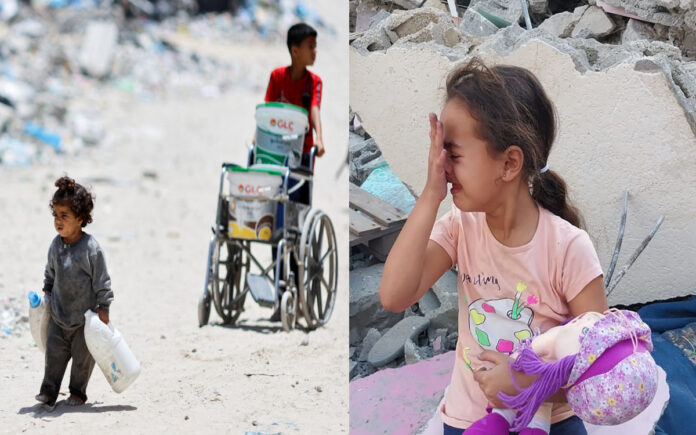In modern history, if February 24 marks the darkest day for Europe, then October 7 holds the same significance for the Middle East. The world is currently in turmoil, fighting for peace. If political experts and analysts are correct, we stand on the brink of another world war. Some argue that World War III has already begun—initiating in 2022 and escalating further in 2023. Two major continents are teetering on the brink of chaos, sitting on a bed of hot lava that could erupt and engulf the entire world at any moment.
Negotiations are failing, the arms trade is thriving, wars are spreading, and peace remains elusive. The world is gasping for air, and if this continues, the acrid smell of gunpowder will soon permeate every corner of the globe. Many argue that we are facing one of the most critical times in history, even more perilous than the Cold War era. In the past, people feared, yet believed that the superpowers would refrain from using nuclear weapons against each other. Today, however, more than two countries possess such arms. Should the conflict spread, ideologies will back them, threatening to collapse the global order at any moment.
The fear of nuclear war now appears increasingly inevitable if we do not take action. A cloud of dread hangs overhead; let us not awaken to the grim reality that nuclear war has begun and that humanity may have only a few hours left.
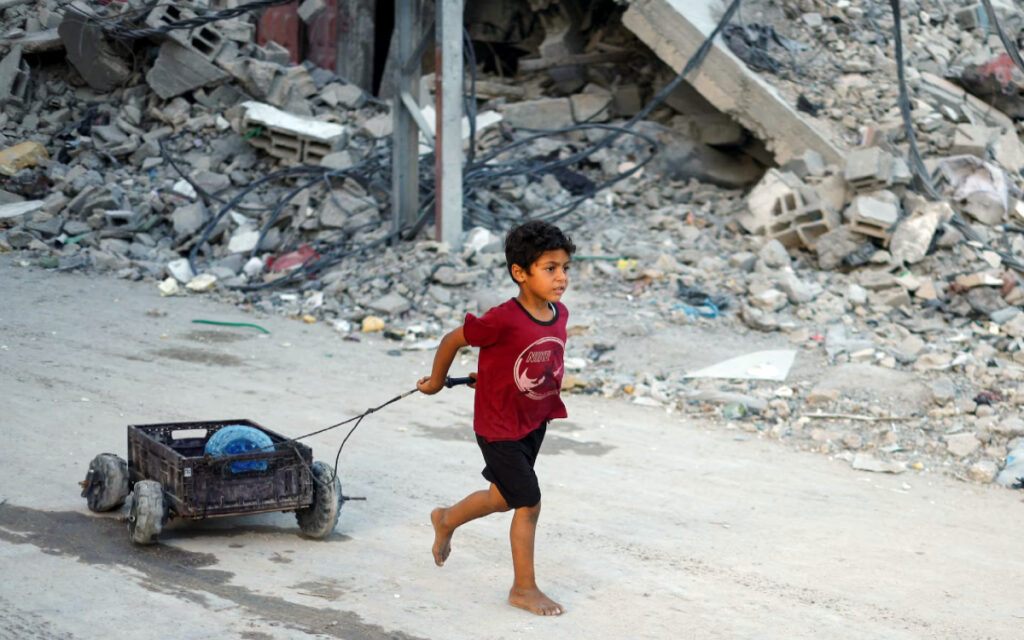
The Outbreak of the Gaza War
The Gaza War erupted with sudden intensity, shaking the already fragile balance in the Middle East. What began as a series of escalating tensions between Israel and Palestinian militant groups rapidly transformed into a full-scale conflict. By October 7, the war had taken a devastating toll on both sides, leaving a wake of destruction and deepening the humanitarian crisis that has long plagued the region.
At the heart of the conflict lies the deep-rooted animosity between Israel and Hamas, the militant organization that controls Gaza. This tension, brewing for decades, resurfaced with renewed vigor, driven by political, religious, and territorial disputes. Each side blames the other for the violence, while the international community watches in alarm, fearing the conflict will spiral into a larger regional war.
The outbreak of hostilities was marked by a barrage of rocket fire from Gaza into Israeli cities. Within hours, Israel responded with airstrikes targeting key Hamas infrastructure. The air was filled with the sounds of explosions, sirens, and the cries of the innocent caught in the crossfire. As both sides dug in, civilians paid the highest price. Homes were reduced to rubble, families torn apart, and Gaza’s already fragile infrastructure pushed to the brink of collapse.
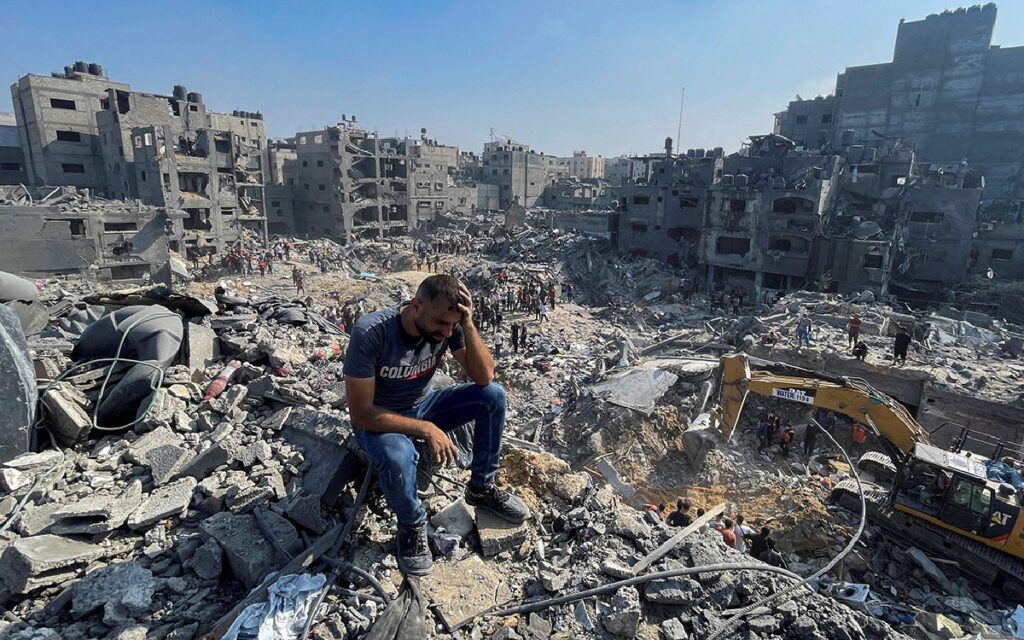
Hamas justified its actions as a response to Israeli provocations, particularly regarding the expansion of settlements and the restrictions imposed on Palestinian access to holy sites in Jerusalem. The Israeli government, in turn, framed its military response as a defense against terrorism, aiming to neutralize threats from militants who had embedded themselves among the civilian population.
In the fog of war, truth became a casualty. Both sides engaged in propaganda campaigns, each painting the other as aggressors and themselves as victims. As the violence escalated, efforts at diplomacy faltered. Regional powers such as Egypt, Jordan, and Turkey attempted to broker ceasefires, but their efforts were undermined by the lack of trust between the warring factions and external influences. Iran’s backing of Hamas and Hezbollah further complicated peace efforts, while the United States and its Western allies stood by Israel’s right to self-defense.
The war also drew sharp lines across the international community. Western nations, particularly the United States and much of Europe, largely supported Israel, condemning Hamas for its rocket attacks and human shield tactics. On the other hand, many Middle Eastern and global south countries condemned Israel’s military actions as disproportionate, accusing it of committing war crimes and violating international law.
The humanitarian toll of the war became increasingly unbearable. In Gaza, hospitals were overwhelmed with casualties, and essential supplies like food, water, and medical aid dwindled. The Israeli blockade of Gaza, already a source of immense hardship, tightened further, exacerbating the suffering. International humanitarian organizations appealed for aid, but the ongoing conflict made delivery nearly impossible.
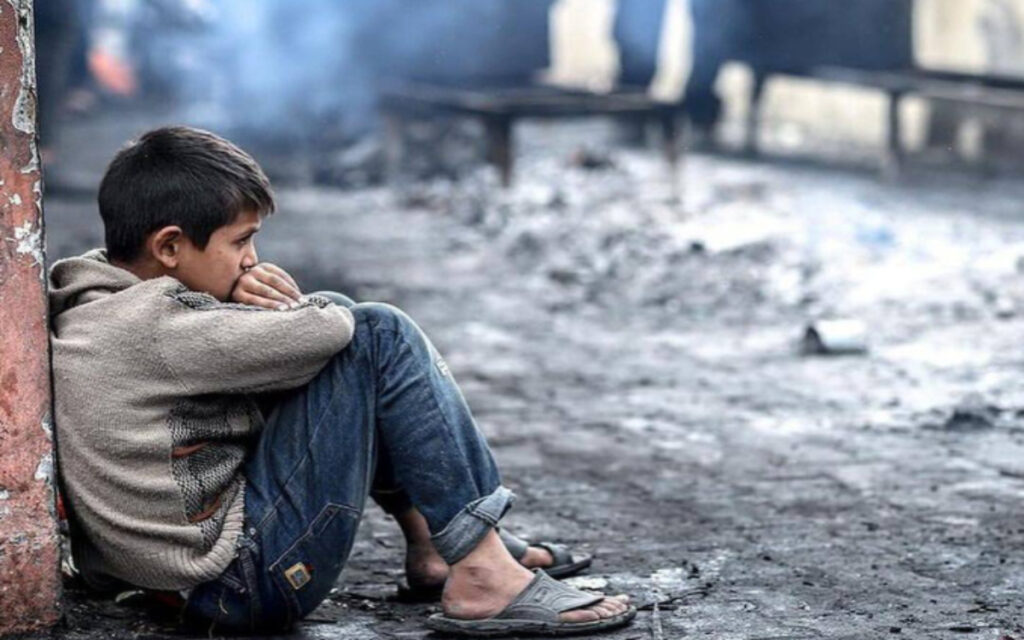
Meanwhile, Israeli cities faced relentless rocket fire, with civilians huddling in bomb shelters, schools closing, and daily life disrupted by the ever-present threat of death from above. The Iron Dome missile defense system intercepted many rockets, but it was not infallible. Every missed interception meant potential casualties, adding to the tension and fear gripping the Israeli population.
As the war dragged on, calls for a ceasefire grew louder, yet hope remained distant. The cycle of violence in Gaza is deeply ingrained, with neither side willing to back down. Israel’s military superiority has long enabled it to respond decisively to any perceived threat, while Hamas, fueled by ideology and external support, continues to view armed resistance as its only path to achieving political and territorial gains.
Hostage Crisis in the Israel-Hamas Conflict
On October 7, 2023, during the initial stages of the Israel-Hamas war, Hamas and other Palestinian militant groups abducted 251 individuals from Israel, including children, women, and the elderly, transporting them to the Gaza Strip. Among the hostages, a significant number are foreign nationals or have dual citizenship. By August 28, 2024, 117 hostages had been returned alive, with some released in a prisoner exchange deal and others rescued by Israeli forces. Tragically, 37 hostages were confirmed dead, with reports indicating that 73 were killed during the initial attack or while in captivity.
At the war’s outset, Hamas proposed releasing all hostages in exchange for the release of Palestinian prisoners held by Israel. By October 2023, Israel was detaining around 5,200 Palestinians. Negotiations involving various countries, including Qatar, took place throughout the conflict. On November 22, 2023, a cease-fire was established, resulting in the release of 150 Palestinian prisoners in exchange for approximately 50 hostages. By the end of the cease-fire, 105 civilian hostages had been released.
In February 2024, Israeli forces rescued two Argentinian-Israeli civilians in Operation Golden Hand. However, by September 2, 2024, Hamas indicated a shift in policy, suggesting that any attempt by the Israel Defense Forces (IDF) to rescue hostages could result in their execution rather than peaceful negotiations.
‘War Criminal’ Tag and Failure of the Netanyahu Government
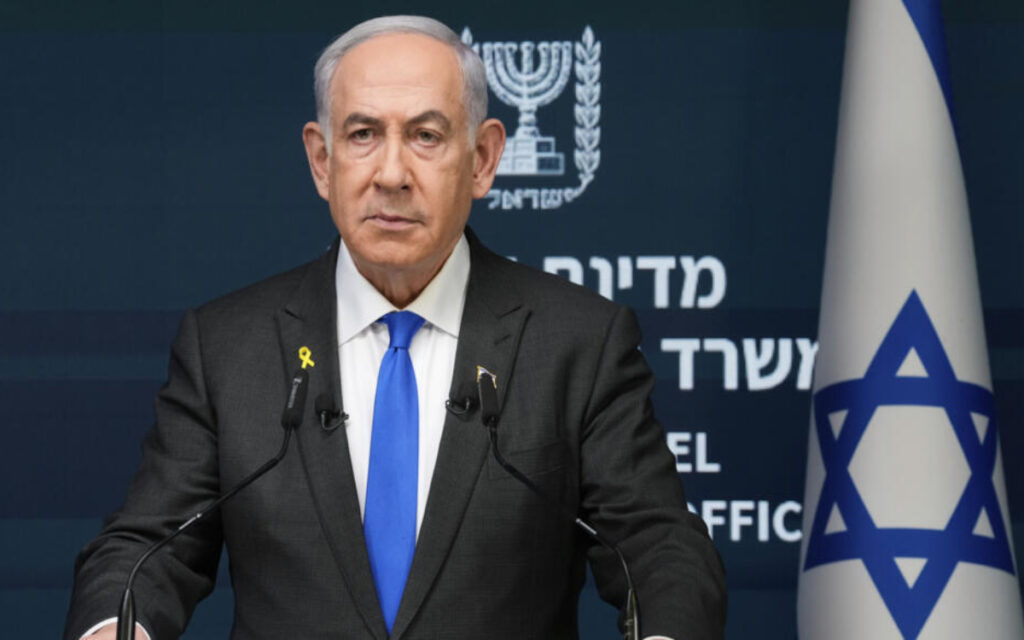
The ongoing Gaza War has brought significant scrutiny and criticism to Israeli Prime Minister Benjamin Netanyahu, with many labeling him a war criminal for his government’s actions. As the conflict escalated, the Israeli leadership faced harsh backlash, not only from international observers but also from within its own borders. The Netanyahu administration’s approach to the war, coupled with perceived failures of Israel’s intelligence agency, Mossad, raises critical questions about accountability and the consequences of military strategy in an already volatile region.
Since his return to power in late 2022, Netanyahu has pursued a hardline approach toward Hamas and the broader Palestinian issue. His government’s military operations in Gaza have been characterized by overwhelming force and a relentless pursuit of what it claims are security objectives. However, as the death toll rises and destruction mounts, critics argue that these tactics have not only failed to achieve their stated goals but have also exacerbated the humanitarian crisis in Gaza, resulting in immense civilian suffering.
The international community has increasingly viewed Netanyahu’s actions as violations of human rights, leading to calls for accountability. Human rights organizations have documented numerous incidents that they argue amount to war crimes, including indiscriminate bombings and the targeting of civilian infrastructure. The Prime Minister’s steadfast refusal to engage in meaningful peace talks has further fueled accusations of criminality. Instead of seeking diplomatic solutions, Netanyahu has opted for military responses that have only deepened the conflict.
Mossad Falls Short in Its Intelligence
Central to this discussion is the role of Mossad, Israel’s revered intelligence agency. Traditionally considered one of the most effective intelligence organizations globally, Mossad’s failures during the early days of the Gaza War have raised eyebrows and prompted critical assessments of its capabilities. In the lead-up to the conflict, intelligence analysts failed to predict Hamas’s military strategies and preparations, resulting in significant setbacks for Israeli forces. This intelligence gap not only undermined military operations but also highlighted vulnerabilities in Israel’s national security.
The consequences of these failures have been profound. Israel’s initial response to the conflict was hampered by a lack of actionable intelligence, leading to miscalculations on the battlefield. As the war raged on, the operational shortcomings of both the Netanyahu government and Mossad became increasingly evident. The disconnect between political leadership and military strategy has left many questioning the efficacy of Netanyahu’s leadership and the competence of the agencies tasked with ensuring the nation’s security.
Israeli Commoners’ Criticism
Netanyahu’s administration has also been criticized for its failure to effectively communicate its objectives to the Israeli public. As the war continues, the Israeli population faces rising anxiety over the potential for an extended conflict. The economic impact of the war, coupled with civilian casualties, has led to growing dissent among Israelis, many of whom are calling for a reevaluation of the government’s approach to the Gaza crisis. Protesters have taken to the streets, demanding accountability and a shift toward a more humane policy that prioritizes peace over aggression.
As international condemnation mounts, Netanyahu’s hardline stance risks alienating traditional allies. Countries that have historically supported Israel’s right to defend itself are now voicing concerns about the humanitarian implications of its military actions. The Netanyahu government’s refusal to acknowledge these criticisms only serves to deepen the rift between Israel and its allies, further isolating the nation on the global stage.
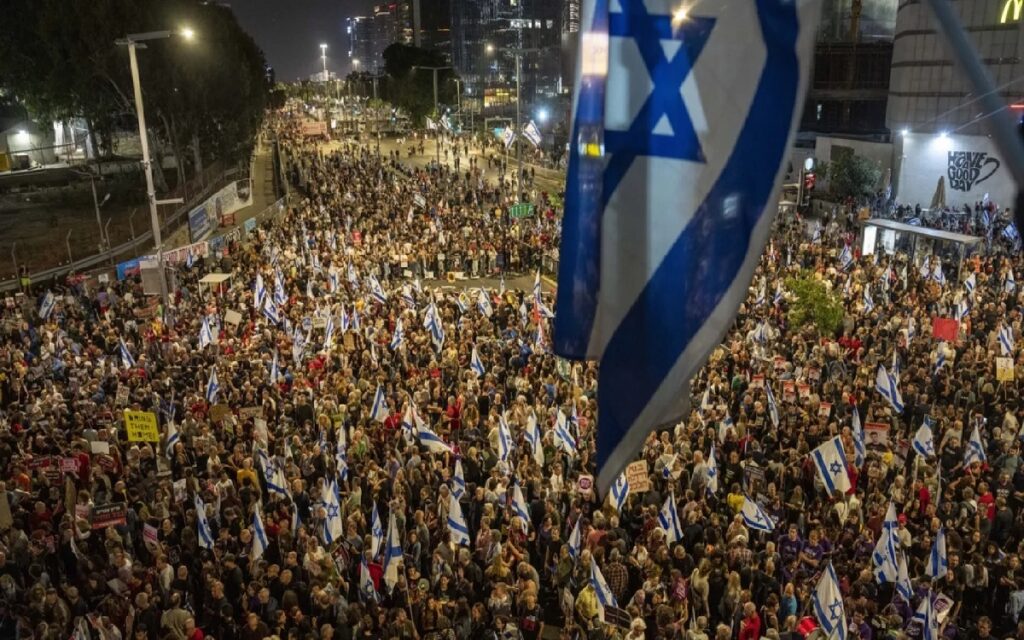
The future of the Gaza War remains uncertain, with Netanyahu’s leadership facing mounting challenges. The Israeli public’s patience is wearing thin, and the consequences of the government’s actions may soon be felt in the political arena. Calls for an independent investigation into alleged war crimes are growing louder, and the pressure on Netanyahu to justify his military strategy intensifies. As the conflict drags on, the implications for Israel’s long-term security and stability remain dire.
Gaza War has not only highlighted the complexities of the Israeli-Palestinian conflict but has also exposed significant failures within the Netanyahu government and Mossad. As allegations of war crimes surface, the urgency for accountability and a reevaluation of military strategies is paramount. The future of peace in the region hinges on whether Israeli leadership can learn from these failures and shift toward a more diplomatic and humane approach to the ongoing crisis. Without such changes, the cycle of violence is likely to continue, leaving an indelible mark on both Israeli and Palestinian societies.
Gaza War and the Arab World: A Lack of Unity
The Gaza War has revealed a troubling reality within the Arab world: a significant lack of unity and effective support for the Palestinian cause. Historically, Arab nations have been vocal in their backing of Palestinian rights, but the recent conflict has seen many governments resort to cautious rhetoric rather than decisive action. This reluctance is rooted in a complex web of geopolitical interests, internal politics, and shifting alliances that have increasingly overshadowed solidarity with the Palestinian people.
The broader context of the Arab Spring and subsequent political upheavals has led to a reorientation of priorities for many Arab states. Nations like Egypt, Jordan, and Saudi Arabia, which once played pivotal roles in advocating for Palestinian rights, are now more focused on their national interests, including stability and economic development. These priorities often take precedence over the Palestinian cause, leading to a perception of abandonment among Palestinians who look to their Arab neighbors for support.
The normalization of relations between Israel and several Arab countries has further complicated the situation. Agreements like the Abraham Accords have signaled a shift in regional dynamics, with some Arab nations choosing to engage diplomatically with Israel rather than confront its policies toward Palestinians. This move has drawn sharp criticism from both Palestinians and other Arab states, which view such actions as a betrayal of the Arab consensus supporting Palestinian rights.
The humanitarian crisis resulting from the Gaza War has exposed the limits of Arab solidarity. While grassroots sentiments among Arab citizens often express outrage and empathy for the plight of Palestinians, this public outcry has not translated into effective political action. Protests have erupted across various Arab cities, yet the muted responses from governments reflect a disconnect between public opinion and state policy, compounding the sense of isolation felt by Palestinians.
Gaza War has illuminated the fractures within the Arab world regarding the Palestinian cause. The absence of a strong, united Arab response serves as a painful reminder for Palestinians of their isolation in a region that has historically positioned itself as their ally. Without a renewed commitment to solidarity and effective action, the plight of the Palestinian people may continue to be sidelined, leaving them to navigate the challenges of the Gaza War with little hope of meaningful support from the Arab world.
The Plague of Identity Crisis vs. Dominant Force
This latest outbreak of violence is not an isolated event. It is part of a broader geopolitical struggle, one that is intertwined with the fate of the Middle East itself. The Gaza War reflects the deeper, unresolved issues of occupation, statehood, and identity that have plagued the Israeli-Palestinian conflict for generations. As long as these issues remain unresolved, the cycle of violence will likely continue, with periods of intense fighting followed by fragile, short-lived ceasefires.
The Gaza War also serves as a stark reminder of the region’s volatility. With global powers involved either directly or indirectly, the conflict threatens to spill over into neighboring countries, pulling in nations like Lebanon, Syria, and Iran. Already, tensions are flaring along Israel’s northern border, where Hezbollah, another Iranian-backed militant group, has voiced its support for Hamas. The possibility of a broader, multi-front war cannot be dismissed.
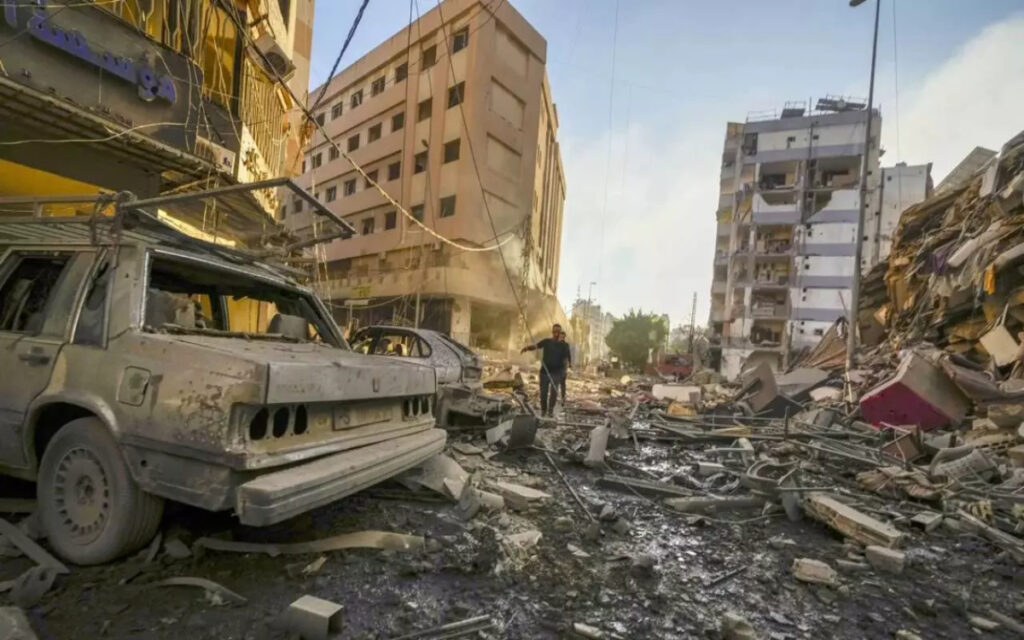
In the midst of this conflict, the pursuit of peace seems like a distant dream. Negotiations are rare and often fruitless, as both sides cling to maximalist positions. For Israel, peace means security and recognition as a legitimate state by its neighbors. For Palestinians, peace means the end of occupation and the establishment of a sovereign state. These aspirations are not inherently incompatible, but decades of mistrust, violence, and failed diplomacy have entrenched both sides in their positions.
What makes this war particularly dangerous is not just the immediate destruction it causes but the long-term consequences for regional stability. With each passing day, the prospects for a peaceful resolution diminish. The more entrenched the conflict becomes, the harder it will be to untangle the web of grievances, revenge, and hatred that fuels it.
The world watches as the Gaza War unfolds, fearful that this could be a tipping point—one that triggers a wider conflict, drawing in regional powers and potentially sparking a global confrontation. The question on everyone’s mind is whether there is a way out before it’s too late, or if the world is witnessing the beginning of a prolonged, devastating war that could reshape the Middle East for generations to come.


